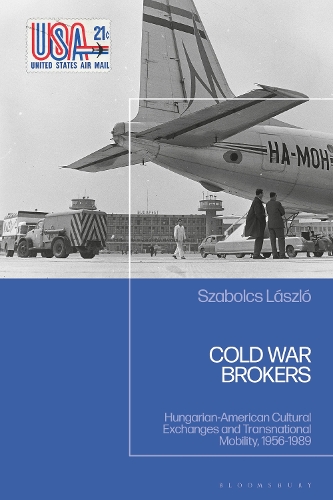
Cold War Brokers: Hungarian-American Cultural Exchanges and Transnational Mobility, 1956-1989
(Hardback)
Publishing Details
Cold War Brokers: Hungarian-American Cultural Exchanges and Transnational Mobility, 1956-1989
By (Author) Szabolcs Lszl
Bloomsbury Publishing PLC
Bloomsbury Academic
19th March 2026
United Kingdom
Classifications
Professional and Scholarly
Non Fiction
History of ideas
Physical Properties
Hardback
288
Width 156mm, Height 234mm
Description
Examining Cold War encounters between Hungary and the US during the 1960s-80s, this book explores how academic and cultural mid-level mediators brokered official and informal ties between these separate geopolitical worlds and identifies how their interactions shaped the cultural and scholarly environment of both countries.
Cold War Brokers follows the transnational adventures of writers, scholars and artists as they crossed the Iron Curtain literally and figuratively, facilitating the circulation of knowledge between the global centre and periphery. From Hungarian writers who toured the US with the International Writing Program, to music teachers who collaborated to transfer the acclaimed Kodly-method to the U.S., and Hungarian experts on Uralic and Altaic languages who introduced a separate branch of area studies to the US national security paradigm, these transnational mediators ushered in processes of inter-reliant modernization in cultural policy, education and science in both countries. Arguing that their collaboration could not merely undermine ideological dichotomies, but rewrite the history of the Cold War and the imbalances of centre-periphery relations, Lszl shows how non-state actors were able to use the opportunities presented by the Cold War for professional development and network building to achieve agency in Cold War encounters.
Author Bio
Szabolcs Lszl is a Research Fellow at the Institute of History, Research Centre for the Humanities in Budapest, Hungary. He is an expert of Hungarian American cultural relations, and has published widely in this field. He is the book review editor of the Hungarian Studies Review and co-editor of the Routledge Handbook of Hungarian History.
